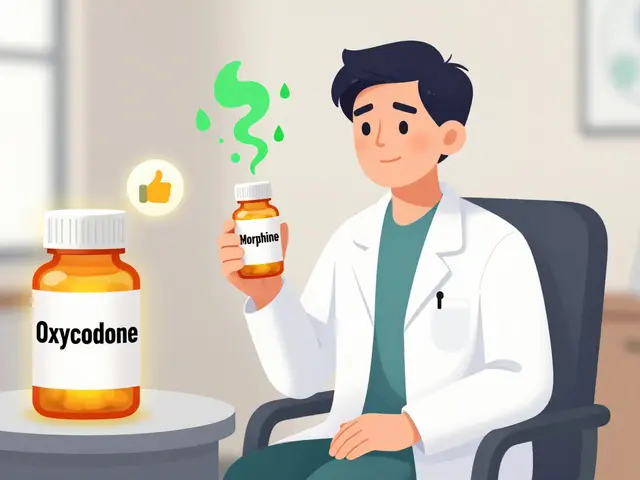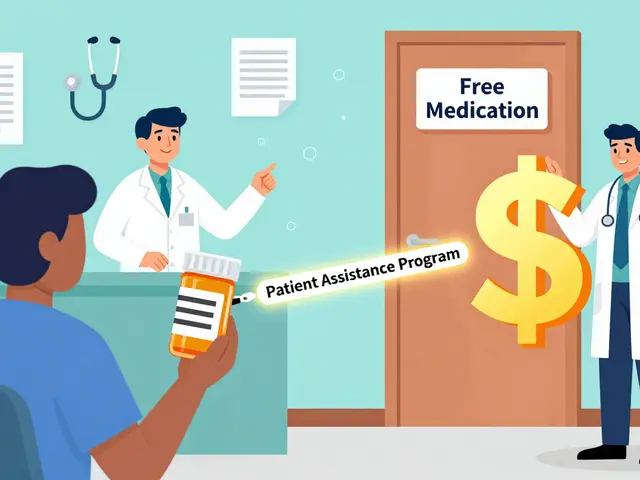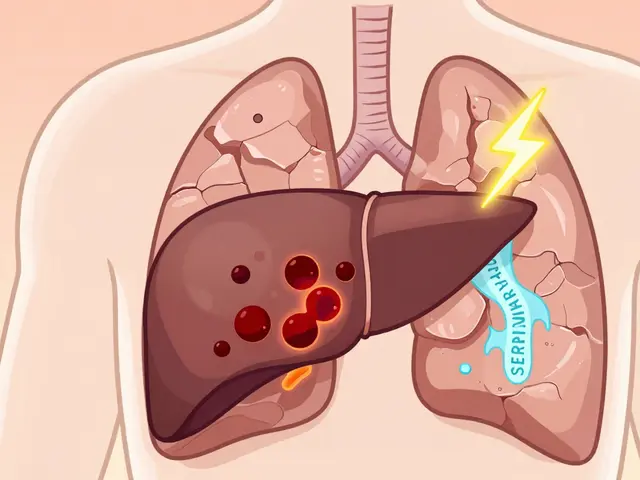Black Seed Supplement Dangers: Liver Risks, Drug Interactions, and Safe Dosage Explained

What Happens When You Take Too Much: Inside Black Seed Supplement Risks
If you’re the sort of person who’s always looking for the next miracle thing in a bottle, then black seed supplements have probably already caught your eye. Nigella sativa — that’s the humble black cumin, not to be confused with cumin or caraway — has been used for centuries and gets hyped on every wellness blog. But here’s the thing most people don’t realize: just because something’s ancient or “natural” doesn’t mean maxing out your dose is risk-free. Definitely not with black seed. And if you think you can’t overdo it with this stuff, there’s research that says otherwise. One clinical study published in the Journal of Food and Chemical Toxicology (2019) highlighted that mice given high doses of thymoquinone, the main active in black seed oil, showed significant stress on the liver—the kind that, in humans, could land you at the doctor’s office.
Your liver is basically your body’s chemical processing plant. It’s supposed to handle toxins and sort out medications, keep your hormones balanced, and more. Black seed’s main punch comes from thymoquinone, which, in the right dose, acts as a strong antioxidant. But in high amounts, it can overwhelm your liver’s defenses. There have been case reports of supplement overuse causing elevated liver enzymes. These spikes mean your liver cells are getting damaged, a red flag that things could get much worse. Imagine you started popping black seed capsules daily, maybe doubling up for 'extra benefit' because you heard it helps immunity or skin health. A few weeks later, you feel extra tired, your skin’s got this weird yellowish tint, and food seems impossible to digest. That’s classic early liver toxicity symptoms.
Liver damage from black seed supplement misuse doesn’t hit overnight, but over time persistent misuse can seriously risk your health. I once tried what I’d call a ‘wellness experiment summer’ with different herbal supplements, including black seed oil. I paid attention to how I felt, and honestly, even though the bottle said 'all-natural', I noticed sluggish afternoons and a hint of indigestion after a few weeks. I took a break and the fatigue lifted. While that’s just a personal story, it lines up with the warning signs and what experts say. High supplemental doses, especially in oil form, have been linked to hepatotoxicity (liver damage), and this isn’t as rare as you’d think. A good tip: if you’re already taking other things metabolized through the liver, like acetaminophen (Tylenol) or cholesterol meds, combining them with high doses of black seed is playing with fire.
How much is too much? That’s still in the research phase, but most experts suggest staying well below the doses you’ll see on those “extra strength” labels. Animal studies point to toxicity at levels that would take many teaspoons a day in a human, but the exact line is blurry, especially in people with preexisting liver issues. For most adults, sticking to one to two grams of black seed oil per day, or as little as 500mg of concentrated extract, is usually considered within the 'safe zone.' But more research is needed, and always talk to your healthcare provider before going all-in on a new supplement routine.
Don’t ignore your body’s signals, either. Common warning signs like dark urine, yellowing eyes, abdominal pain, weird bruising, or unexplained fatigue should get checked right away. Your pets won’t remind you, but the symptoms will. It baffles me how quick people are to triple their dosage chasing results. When it comes to black seed supplements, moderation keeps you safe. Keep a log, maybe a sticky note where you keep your vitamins, to track your dosage and how you’re feeling. Your future self will thank you.

The Messy Business of Drug Interactions: Black Seed Isn’t Always Friendly
This is where black seed can really mess things up if you aren’t careful. The supplement and pharmaceutical world is filled with interactions, but black seed’s can be especially sneaky. Its active ingredient, thymoquinone, doesn’t just sit there—it's processed by enzymes in your liver (mainly the cytochrome P450 pathway if we’re getting technical). This means it can change how other meds get broken down.
For example, folks on blood thinners like warfarin or clopidogrel should be extra cautious. Some studies say black seed can increase bleeding risk. There was a documented case where someone on a blood-thinner started black seed supplements and suddenly developed dangerous nosebleeds and bruising. Now, that’s not going to happen to everyone, but why gamble? Do you have high blood pressure? Many medications for that condition can be less effective or even unsafe if you throw black seed into the mix, because it can both lower blood pressure and affect absorption.
Then there’s diabetes drugs. Black seed often gets touted for helping blood sugar, but if you’re on insulin or oral hypoglycemics, black seed could push your blood sugar down too low. Let’s be real: juggling both supplement and medicine is not a DIY project. Even herbalists suggest talking to a pharmacist or healthcare provider, since side effects can be subtle at first but spiral fast.
Another group at risk: people using anti-seizure or antipsychotic meds. Because of the way black seed interacts with brain chemicals and metabolizing enzymes, it could theoretically increase side effects or make these meds less effective. The National Institutes of Health even includes a warning to check for interactions before using black seed oil if you’re on prescription drugs.
Pregnant or breastfeeding? Black seed isn’t considered safe in high doses, as there’s not enough data to rule out harm. Animal studies have shown possible effects on pregnancy outcomes at high intake levels, though no giant disasters have been confirmed in people. Better to stay on the cautious side. Kids, too—especially infants—should not be given black seed supplements unless it’s cleared by a pediatrician with experience in herbal medicine.
Now, if you’re the kind of person that likes to look stuff up (and you should be, with your health!), you’ll find this black seed side effects page. It’s loaded with deeper breakdowns of who’s at risk and why these interactions matter. Checking drug interactions before adding any supplement is just smart, not paranoid.
Don’t trust your supplement bottle blindly. Unlike prescription meds, herbal supplements aren’t always tightly regulated for purity or concentration. That means the black seed oil in one brand might be way stronger than in another, and side effects (or drug interactions) can happen more easily. If you switch brands, double check the dosing. Stay with tested brands, and keep your doctor in the loop about what you’re taking, even if it’s “just a vitamin.” I’ve swapped stories with pharmacists who say patients often forget to report their herbal use, and sometimes it explains weird side effects they couldn’t figure out.
Key takeaways for black seed drug interactions:
- Always review your current meds for possible interactions (especially blood thinners and diabetes meds)
- Don’t double up on black seed if you’re already on herbs with similar effects (like ginkgo or garlic supplements)
- Don’t give black seed supplements to children, pregnant, or breastfeeding people without expert clearance
- Switching brands? Check for differences in concentration carefully
- Consult healthcare professionals before starting or changing supplement routines
Think you’re safe because your doctor hasn’t warned you yet? Doctors can’t warn about every supplement unless you tell them. Make your regular checkups count by mentioning new supplements. It could save you a world of trouble down the line.

How Much Is Too Much: Safe Daily Limits and Smarter Use
Trying to nail down a perfect safe daily limit for black seed supplements is like trying to get my Maine Coon Bella to resist jumping on my laptop — it’s tricky and depends on a lot of factors! The problem? There’s no universal standard yet because supplement regulation is loose and research is still catching up. But we can pull together the most trustworthy data to give solid guidance on what actually works (and what’s asking for trouble).
Recent clinical research sits in the ballpark of one to two grams of black seed oil per day for most healthy adults. That’s the dosage often used in studies examining benefits for inflammation, cholesterol, or blood sugar. To put numbers to it, 1 gram of oil is about half a teaspoon. If you’re using standardized extract or capsules, follow the label, but know some companies over-emphasize strength. Some commercial brands sell products with up to three grams per serving — which is flirting with the top end for most people and could be unsafe with chronic use.
Here’s the rub: even the studies showing benefits also note mild side effects at these mid-to-high doses. Reported issues include stomach upset, bloating, dizziness, or rashes. In rare, high-dose cases, people have shown signs of liver enzyme elevation. Want a real-world parallel? Think of coffee: one or two cups, you get the benefits; drink the whole pot, you’re shaking, nauseous, and anxious. Black seed is similar, except the stakes can include liver health, not just the jitters.
If you’ve never tried black seed before, start super low. A quarter teaspoon of oil or one low-dose capsule with food. Note how you feel over a week, and don’t rush to up the dose. If you notice any of the warning signs from earlier, stop and check in with a medical expert. Always read labels and aim for supplements that have third-party verification for purity—USP, NSF, or similar marks. That extra dollar or two is worth the peace of mind.
If you tend to use other herbal supplements, layer slowly — don't introduce two new things at once. Monitor your body; write things down. For those curious about data, here's a quick snapshot comparing safe and risky doses reported in clinical literature:
| Form | Reported Safe Daily Limit | Risky/Reported Toxic Dose |
|---|---|---|
| Black Seed Oil | 1–2 grams (about 0.5–1 teaspoon) | >4 grams (more than 2 teaspoons, long-term use) |
| Powder/Capsule | 500 mg – 1g extract | >2 grams extract or unclear oil content |
Source: Compilation of human clinical and animal studies, 2015–2024.
Here’s something surprising: black seed oil doesn’t build up tolerance in your body the way caffeine does. That means more isn’t better and upping your dose over time doesn’t give extra payoff — you just up your risk. I’ve found that people do best when they pick a few ‘wellness weeks’ a year to experiment, rather than taking large or continuous doses forever. It’s like taking Bella to the vet for scheduled checkups rather than waiting till she’s already limping. Prevention, people!
Don’t trust trendy supplement challenges or suggestions you see popping up on social media. “30 days to perfect skin with 3 teaspoons daily” is just marketing hype — and often dangerous. If your bottle recommends a mega dose, check if it’s just a marketing ploy to move product faster.
If you’re on medication, recovering from illness, or have a history of liver, kidney, or bleeding issues, play it safe. Your best move is to run everything by a doctor, preferably one who knows a bit about herbs. And for those who like simple reminders, here’s a quick guide:
- Start low, go slow
- Max safe oil dose: 1–2 grams/day for adults, less for sensitive groups
- Watch for side effects, especially fatigue or digestion changes
- Check every supplement label
- Loop in your healthcare team
It’s tempting to think more is better, but with black seed supplements, less really is more. Respect the dose, monitor your body, and focus on building healthy routines instead of quick fixes. That way, you get the benefits without the nasty surprises. Your cat would probably agree: stick to safe portions and you avoid messes you can’t clean up later.
20 Comments
Seth Angel Chi
I see the hype around black seed and I smile. Natural does not equal safe. The article screams caution and you already know that supplements can hurt the liver. Most people think “more is better” and they are wrong. I prefer to look at the data and not the marketing fluff. The dose ranges mentioned are still fuzzy but staying under a gram a day is sensible. If you are on medication you should check with a professional. The liver enzymes can spike quietly and you won’t notice until it’s too late. So keep it modest, keep it measured, keep it informed.
Kristen Ariies
Wow, what an insightful perspective, Seth! 🙌 Your balanced take really hits home, and I love how you cut through the hype. Let’s remember that moderation is key-just a teaspoon or two of black seed oil can offer antioxidant benefits, but exceeding that can lead to liver stress! It’s fascinating how the body’s enzymes, especially the cytochrome P450 system, can be overwhelmed by excessive thymoquinone! Therefore, always start low, monitor how you feel, and consult a healthcare provider before upping the dose. Keep spreading the word, and stay healthy! 🌟
Ira Bliss
Hey, health explorers! 🌱 Let’s dive deeper into the interaction piece-did you know that black seed can affect how the liver processes blood thinners? 📊 If you’re on warfarin, even a small amount might increase bleeding risk. Also, for folks with diabetes, combining black seed with insulin could cause low blood sugar episodes. Always track your meds and supplement doses in a journal; it makes spotting patterns easier. Have you tried a third‑party tested brand? Those often have consistent thymoquinone levels, which helps keep things predictable. Stay curious, stay safe, and keep sharing your experiences! 😊
Donny Bryant
I’ve tried a few black seed capsules before. The taste isn’t great, but the effects were subtle. I kept the dose to half a teaspoon and felt fine. If you notice any stomach upset, stop right away. It’s better to be safe than sorry.
kuldeep jangra
Friends, let’s take a moment to consider why the allure of black seed has become so pervasive in the wellness community, especially given the historical background that spans centuries and cultures; this ancient seed, known as Nigella sativa, was once revered in traditional medicine systems across the Middle East, South Asia, and even parts of Europe, and its resurgence in modern supplement form is a testament to our enduring fascination with “natural” cures. However, the modern extraction processes, which often concentrate thymoquinone to levels far beyond what would be consumed in a regular dietary setting, can present challenges for the liver’s detoxification pathways, particularly when users exceed the suggested 1–2 gram daily threshold. When the liver is bombarded with high concentrations of active compounds, the cytochrome P450 enzyme family may become saturated, leading to reduced metabolism of concurrent pharmaceuticals, such as anticoagulants, antihypertensives, and antidiabetic agents, thereby increasing the risk of adverse events. Moreover, prolonged high‑dose intake has been associated with elevations in alanine aminotransferase (ALT) and aspartate aminotransferase (AST), markers that signal hepatic stress and possible injury, which, in clinical practice, would prompt a thorough evaluation and potential cessation of the supplement. It is also crucial to recognize that individual variability-such as genetic polymorphisms in metabolic enzymes, pre‑existing liver conditions, and concurrent alcohol consumption-can dramatically alter one’s susceptibility to toxicity. For those who are eager to experiment, a prudent approach involves initiating therapy with a sub‑therapeutic dose, perhaps a quarter teaspoon of oil or a single low‑dose capsule, and maintaining a detailed log of symptoms, laboratory values, and any changes in medication efficacy. Over the ensuing weeks, if no adverse signals emerge-no unexplained fatigue, no jaundice, no digestive disturbances-the dose can be cautiously titrated upward, but never beyond the established safe upper limits without medical supervision. It cannot be overstated that third‑party testing is a valuable safeguard; products bearing USP, NSF, or ConsumerLab certifications provide greater confidence in label accuracy and contaminant absence. In addition, be vigilant about the source of the oil; cold‑pressed, organic, and non‑GMO designations often correlate with higher quality, though they are not foolproof indicators. Finally, remember that supplements are meant to complement, not replace, a balanced diet and lifestyle; adequate hydration, regular exercise, and a nutrient‑rich diet remain the cornerstones of hepatic health. By respecting these principles, you can harness the potential benefits of black seed-such as modest anti‑inflammatory and antioxidant effects-while minimizing the odds of hepatic complications. Stay informed, stay cautious, and may your wellness journey be both safe and rewarding.
harry wheeler
Good points. The liver metabolism issue is real. Stick to tested brands. Keep dosage low. Monitor labs. Simple.
faith long
Listen up, everyone who thinks popping a spoonful of black seed oil every morning is a miracle-stop kidding yourselves! This isn’t some fairy‑tale cure, it’s a potent bio‑active that can wreck your liver if you don’t respect the science. The literature is crystal clear: high doses of thymoquinone flood the hepatic enzymes, and the result is elevated transaminases, jaundice, and in severe cases, acute liver failure. Yet you still see influencers bragging about “triple doses for extra benefits,” as if their bodies are stainless steel. Do you want to end up in the emergency room, wondering why your blood work looks like a toxicology report? The answer lies in reckless dosing and ignorance of drug interactions. Blood thinners, diabetes meds, antihypertensives-if you’re on any of these, black seed can tip the scales toward disaster. And don’t even get me started on the lack of regulation; one bottle can contain twice the advertised concentration, making your “safe” dose a lethal gamble. If you’re serious about health, you’ll read the labels, verify third‑party testing, and keep the dose under two grams per day-no more, no less. Stop treating your body like a lab experiment for the sake of Instagram likes. Take responsibility, consult professionals, and cease the reckless self‑medication. Anything less is pure stupidity, and the consequences are far from glamorous. Your liver is not a trash can for untested compounds. Every extra milligram you add increases the risk exponentially. Make smart choices before you have to make emergency ones.
Danny Wakefield
Hey Faith, I get where you’re coming from, and honestly there’s a lot the pharma industry doesn’t want you to know about supplement labeling. Some manufacturers slip extra thymoquinone in to boost profit, and the regulators often turn a blind eye. It’s why we see those wild dosage claims popping up online-those are engineered to keep us buying more. Stay skeptical and do your own tests!
Samantha Dean
The discourse surrounding Nigella sativa must be grounded in epistemic humility. While anecdotal reports proliferate, rigorous clinical trials remain limited, necessitating a cautious appraisal of both efficacy and toxicity. The hepatic enzyme modulation attributed to thymoquinone underscores a mechanistic plausibility for drug‑herb interactions, thereby obligating a systematic risk‑benefit analysis before therapeutic endorsement. Consequently, practitioners should adopt an evidence‑based framework, integrating patient history, dosage parameters, and pharmacodynamic considerations into decision‑making processes.
Vanessa Peters
Oh, Samantha, you nailed it! The liver isn’t a forgiving organ, and when we toss high‑dose black seed into the mix, we’re basically playing Russian roulette with our enzymes. The data may be sparse, but the red flags are loud-elevated ALT, unpredictable drug clearance, and that ominous “dose‑dependent” toxicity curve. People need to see the drama in those lab numbers, not just the pretty marketing graphics.
Suzan Graafstra
In the grand tapestry of human health, each supplement is a thread that can either strengthen or unravel the fabric of our well‑being. Black seed, with its mystic allure, is no exception; it beckons with promises yet harbors shadows that only rigorous inquiry can illuminate. Thus, we must balance reverence with reason, lest we become ensnared by the siren song of untested potency.
Kripa Mohamed
Man, these black seed warnings are blowing up my feed. I take some for skin, but I never thought about liver stuff. Gotta check with my doc now.
Ralph Louis
Yo, Kripa! That’s the classic “natural = safe” fallacy, bro. You’re basically sipping on a phytochemical cocktail that could hijack your cytochrome pathways and turn your liver into a biochemical battleground. Plug that into your health equation and you’ll see the risk spikes like a stock market crash. Better to stay in the safe zone before you get burned.
Angela Allen
i totally get the hype but u need 2 watch ur body. i had some weird stomach thing after 2 weeks of black seed. maybe i took too much?
Christopher Jimenez
Angela, your experience, albeit anecdotal, underscores a fundamental truth: the commercial narrative surrounding Nigella sativa is riddled with hyperbole, and the lay audience often consumes it with reckless abandon. The scholarly consensus posits that dosage thresholds are not merely recommendations but pharmacokinetic imperatives; to flout them is tantamount to scientific hubris. One must therefore adopt a circumspect stance, privileging empirical validation over populist enthusiasm.
Olivia Christensen
Interesting take, Christopher! 😊 While I agree that evidence‑based caution is essential, I also think personal narratives can spark curiosity that leads to deeper research. If anyone’s reading, maybe start a journal of your black seed intake and any side effects-sharing that data could benefit the community! 🌿
Lauren W
Olivia, your suggestion to maintain a personal health log is exemplary, and I must commend you for championing empirical self‑monitoring; however, let us not overlook the necessity of corroborating such anecdotal evidence with rigorous clinical methodology-otherwise, we risk perpetuating a false sense of security that may, in fact, be detrimental to hepatic integrity!!!
Crystal Doofenschmirtz
Has anyone tried combining black seed with other herbal extracts like curcumin? I’m curious about synergistic effects but also wary of cumulative liver load.
Pankaj Kumar
Crystal, mixing botanicals can be a double‑edged sword; while curcumin may amplify anti‑inflammatory pathways, both compounds are metabolized by the same hepatic enzymes, potentially causing a competitive inhibition scenario that stresses the liver. Proceed with caution and perhaps stagger the dosing to mitigate overload.
sneha kapuri
Enough with the hype.






Write a comment